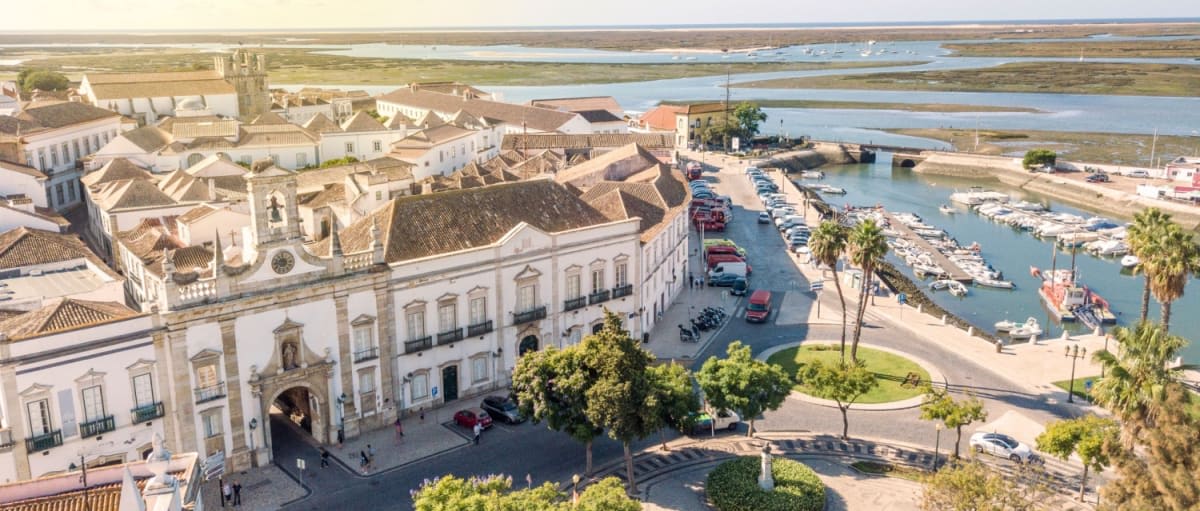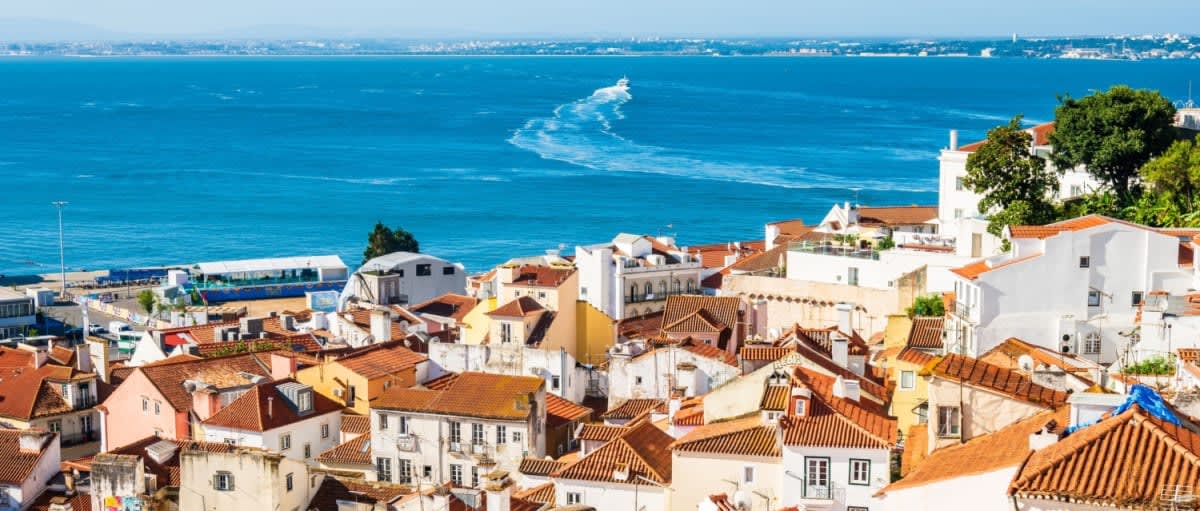Owning a home in Portugal can offer both lifestyle and financial rewards, whether it’s a retirement escape in the Algarve, a pied-à-terre in Lisbon or a rural retreat in the Alentejo. For international owners, however, managing a property from abroad is a challenge that demands planning, local knowledge and the right support network. But managing your Portuguese property doesn’t have to be a stressful experience.
From choosing a property manager to maintaining your home between visits, it’s crucial to have a strategy in place to protect your investment. Poor upkeep, compliance issues or long response times to tenant needs can reduce your property’s value – and cost you money.
Whether your home is for personal use, rental income, or a bit of both, this article will show you how to keep everything running smoothly.
Download the Portugal Buying Guide
Contents

Hiring a property manager
If you’re not based in Portugal full-time, partnering with a local property manager is a smart first step. A good property manager will become your eyes and ears on the ground, taking care of everything from handing over keys to tenants to overseeing emergency repairs.
The tasks a manager can handle range from the routine to the highly specialised. These include drawing up inventory lists, arranging inspections, handling guest check-ins if you’re letting the space, and even assisting with insurance claims or dealing with water leaks during heavy rain. In short, they serve as your local representative and ensure your property is being looked after when you can’t be there.
When choosing a company, do not rely solely on internet reviews. Ask them for references from other international owners, confirm they are legally registered, and make sure they are insured for the services they provide. If you’re renting out the property, confirm they’re experienced in Portugal’s tenancy laws, such as the Alojamento Local rules for short-term lets or long-term landlord responsibilities under national tenancy contracts (Lei do Arrendamento Urbano).
Remember that Portugal has a diverse property market. A manager who specialises in flats in Lisbon may not be the right fit for a rural villa near Faro. Speak to one of our recommended experts to be matched with a local professional who fits your needs.
For more details about purchasing property, claim your free copy of our Portugal buying guide:
Download the Portugal Buying Guide
Understanding property management costs
Property management fees in Portugal in 2025 vary depending on the type of home you own and the services you require. In urban areas or holiday hotspots like the Algarve and Lisbon, expect to pay a premium for on-demand services. More remote properties may attract lower rates but require additional travel costs for maintenance call-outs.
Most management companies offer tiered service packages. Basic packages usually cover monthly inspections, key-holding and emergency response – typically costing from €40–€100 per month. Full management of short-term rentals may cost significantly more, often calculated as 20–30% of your rental income. This higher rate reflects the labour involved in guest communication, cleaning, laundry and regulatory compliance.
In apartment buildings, you’ll also pay despesas de condomínio (condominium fees), which cover communal services such as lift maintenance, shared cleaning services and lighting. These fees are determined by the number of units in your building and the services available.
Be sure to read the fine print before signing any service agreement. Some contracts have rigid auto-renewal clauses or add extra costs for out-of-hours call-outs or minor repairs. A clear, written estimate – preferably in English – is essential for transparency.
And remember: not all costs are monetary. Delays in responding to guest issues or lapse in maintenance updates can damage your property’s value or rental reputation. It’s worth paying for competence, not just convenience.
Routine maintenance and upkeep
Staying on top of general maintenance will save you far more than it costs. In Portugal’s varied climate – from humid Atlantic coastlines to the hot, dry central regions – small problems can snowball quickly if ignored.
If you live abroad, set up a seasonal maintenance schedule. This should include gutter clearance before winter rain, air conditioning servicing before summer, boiler checks, pest control and regular inspections of roofs, shutters and damp-prone areas. Salt air near the coast can damage paintwork and metalwork faster than in landlocked regions, while rural homes may need well system testing or septic tank inspections.
If your property is vacant for long periods, it’s wise to have someone open windows, check plumbing and monitor electricity periodically. A shut-up house can develop issues with mould or become a target for theft if it appears obviously empty.
If tenants are in place, maintain a log of all maintenance work with invoices and photos. This not only protects you if disputes arise but also contributes to future resale value by showing a trail of responsible ownership.
Property management firms typically offer maintenance services directly or subcontract to trusted local tradespeople. For minor tasks such as garden care or window cleaning, hiring locals independently may save money – providing you can communicate clearly and have someone to supervise the work.
Strategies for absentee owners
If you’re not in Portugal most of the year, you’ll need to set up ways to safeguard your investment and minimise admin stress.
First, build a trusted local team. This should include a property manager, a bilingual lawyer and a qualified accountant. They can help with everything from inheritance planning to tax declarations and tenant disputes. Portugal’s tax system treats rental income differently depending on whether you earn it from long- or short-term lets. A local accountant can guide you through available deductions and filing deadlines.
Second, inform neighbours that you own the property, even if you don’t know them personally. They may alert you or your manager to any suspicious activity, water leaks or storm damage.
Third, learn your legal obligations. As an owner, you must comply with local safety laws – including gas and electrical safety. If renting short-term, you must register for an Alojamento Local (AL) licence and display that number in all listings. Owners who do not comply with licensing and emergency safety equipment rules can face fines, especially in Lisbon, Porto and other tourist hotspots where enforcement has increased in recent years.
Fourth, keep secure digital records of ownership documents, insurance, and contact details for emergency trades. Consider installing smart systems, such as door cameras and sensors, so you can monitor your home remotely.
Lastly, keep tabs on the local property market. Whether you’re planning to sell one day or assessing rental income potential, understanding trends in the area – such as planned infrastructure upgrades or tourism growth – helps you make well-informed decisions.
Ready to take the next step?
Managing your Portuguese home isn’t difficult – if you’re prepared and supported by the right professionals. Whether you’ve already bought or are still in the planning phase, our team at Your Overseas Home can help you find an experienced property manager, understand the rules around rentals, and connect with reliable local services.
Start your journey with a free consultation today. Let us take the stress out of owning property abroad.
Good property management starts with smart decisions about location and purchase. If you’re still exploring where to buy property in Portugal, our regional guide can help you choose the best area for your needs – whether you’re investing, relocating or buying a second home. And when you’re ready to take the next step, our expert guide to how to buy property in Portugal explains everything from legal checks to finalising your purchase.
Frequently asked questions
Yes, a property manager is highly recommended for absentee owners. They provide on-the-ground support, handle emergencies, oversee rentals, and ensure maintenance is carried out. This reduces your risk and protects your investment.
Basic property management starts from €40–€100 per month. Full-service rental management can cost 20–30% of rental income. Be sure to clarify what is included, and whether charges apply for extras like out-of-hours work or repairs.
Start by hiring a trusted property manager and keeping digital copies of all important documents. Learn about your obligations under Portuguese law, and consider smart home systems for remote monitoring. A local lawyer and accountant will also help with compliance and tax filing.









